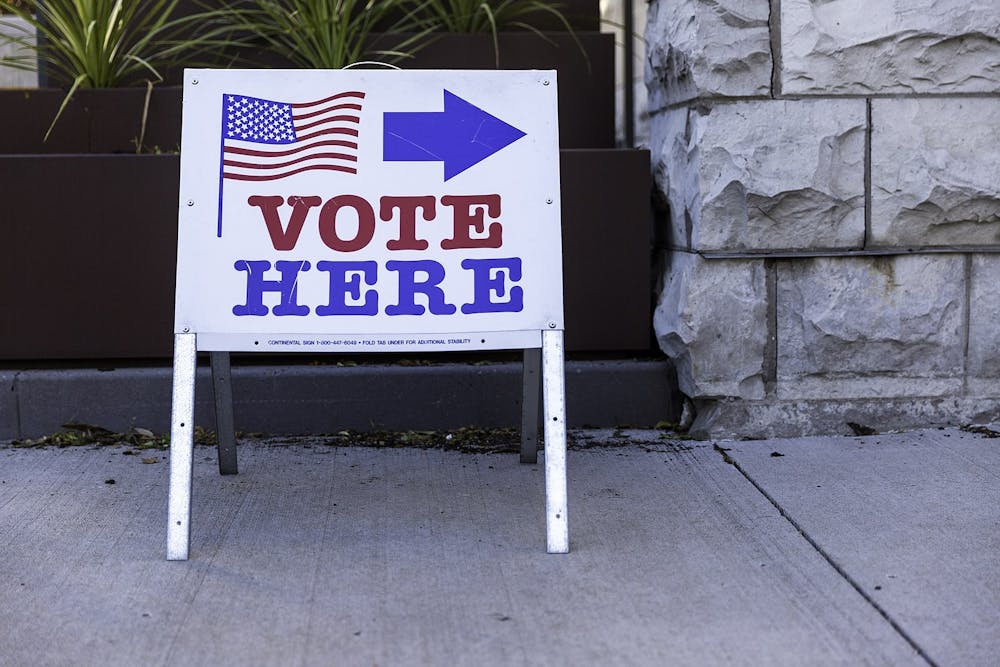It’s no secret that Election Day is upon us. Princeton’s campus is constantly abuzz with students rushing to collect their ballots and then, after filling them out, furiously trying to get them stamped and mailed in time. As students, we can’t help but question how the election process might be made more accessible.
In 2016, among eligible college students who did not vote on Election Day, nearly half cited conflicting commitments as their main reason. For many students, conflicts emerged due to how their schools continued to host classes during this vital day. Princeton is one such school, yet per an overwhelmingly successful 2020 student referendum, it shouldn’t be.
In winter 2020, the student body voted to make Election Day a holiday. An overwhelming 89 percent of students voted in favor, yet the Princeton administration has still not responded to this call to action. As a majorly consequential election approaches, now is the time to address this issue.
When the idea of an Election Day holiday for faculty, staff, and students was first proposed a few years ago, President Christopher Eisgruber ’83 responded: “Our approach is to emphasize the need for managers to be flexible and supportive, because there are lots of ways to vote, including by mail in New Jersey. We don’t think a holiday is the right way, but we think it’s important to support efforts to increase capacity to vote.”
Eisgruber’s response has many merits. It’s worth noting that thousands of out-of-state students are already receiving mail-in ballots. Adding New Jersey residents to the mix could only slow Frist’s letter processing system down. If anything happens to that ballot — or if a student wishes to change their vote — they have no choice but to show up at the polls. This can be extremely difficult for students with a full day of classes and extracurricular commitments, and may indeed prevent them from voting at all. A class-free Election Day would alleviate this worry.
Furthermore, students are just one of many important voting blocs on Princeton’s campus. For the people working on University grounds — dining hall and janitorial staff, for example — the ability to get to the polls is even less certain. It’s particularly difficult for staff who work in the dining halls, which remain open until 8 p.m., the same time at which New Jersey polls close. Perhaps a holiday for Election Day could run on a typical weekend meal schedule with only brunch and dinner served, which would only require two shifts, allowing half of the dining staff to vote in the morning, half in the evening.
It is deeply inequitable to ask staff to find their way to a polling station early in the morning before a weekday shift, especially those who can’t vote close to University grounds. It’s important to note that the University does not guarantee paid time off to vote. In fact, deciding whether or not to let employees leave to vote is left up to individual managers. Accordingly, access to the fundamental right to vote is not consistent across the University.
Furthermore, if the university truly seeks to form us “in the nation’s service”: this can — and should — include pollworking and poll watching. It is absolutely impossible for any Princetonian to do these necessary duties if classes are scheduled that day. As poll workers get older and aren’t being replaced by younger ones at a quick enough rate, engagement of any kind is vital. We can testify firsthand to the necessity of keeping poll places running efficiently; otherwise, lines may stretch so long that some potential voters become disheartened, and leave. Efficiency requires, above all, many hands on deck. Princeton students can’t provide that invaluable service if they’re sitting in a lecture class miles away from a poll site.

Princeton has educated senators, presidents, and countless local officials. How, though, are we expected to join the next generation of influential leaders if we don’t even have the time to practice our civic duties on the micro-level here at school? What message is the University sending about the importance of engaging thoughtfully and deliberately with American politics?
Princeton’s Voter and Election Information page says: “Princeton University is committed to supporting this process and helping its students engage in this vital civic duty.” If the University is as committed as it has claimed to be, then the creation of an Election Day holiday is the logical next step to ensure that voting is all the more accessible for the thousands of voters who call Princeton home.
It’s for exactly these reasons that Rice, Columbia, Stanford, and Brown all ensure that their students get Election Day off. Even if this is supererogatory, Princeton’s unique mission and dedication to turning out civically engaged and politically conscious citizens should further compel administration to give students Election Day off.
When the next academic calendar is written, administration must keep in mind the value of going to the polls. The chance to vote is a privilege — and we must not become complacent. Our own political efficacy depends upon it.

Anna Ferris is a contributing Opinion writer and a junior in the English department. She can be reached at annaferris[at]princeton.edu.
Aishwarya Swamidurai is a junior involved with Vote100.








